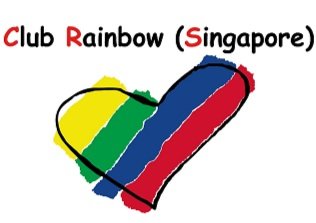Interview with Nurul, Senior Social Worker
Children supported by Club Rainbow are diagnosed with a wide range of conditions and can have quite different needs. Every child is assigned a social worker when they join us. The social worker will assess the needs of the child and come up with a holistic care plan to support the family during their journey with us till the child graduates at the age of 21.
This round, we spoke to Nurul, our Senior Social Worker, to give you more insights into the work of our social workers.
What makes you decide to be a social worker?
Nurul (seen left in picture)
Nurul: Ever since I was young, I already knew that a desk-bound job is not for me. Being able to relate to people and helping people is what I always wanted. I graduated with a degree in Human Resource and I used to be a HR practitioner. Previously I was in a Human Resource role and very early on in my career I moved on to become a Case Manager at a statutory board. At the same time, I studied part-time to complete my post-graduate diploma, after which I went on to do my Masters Degree in Social Work. I have been a social worker for nearly 11 years, out of my 15 years in the social service sector.
Nurul and her team of social workers from Club Rainbow (Singapore)
Can you tell us more about your role as a senior social worker in Club Rainbow (CRS)?
Nurul: Since I joined CRS in Jan 2017, I was appointed as a Senior Social Worker and worked very closely with the Head of Department. I am leading a team of social workers focusing on neurological disorders, renal and gastroenterology. In September 2017, I collaborated with another Senior social worker and colleagues from Client Services department to start the ASD parent support group initiative which we have carried on till today. My team has recently embarked on a youth support group project led by one of the Social Worker under my care. The needs of youths and what they are interested in, are quite different from that of a younger child so our programmes have to be able to cater to beneficiaries at different stages of their lives.
There was a period of time when we did not have enough social workers to support the growing number of beneficiaries. At one point, I had to handle 180 cases! Now with the expansion of our team, I handle about 30 over cases. Apart from that, I supervise the social workers in my team with the cases they have on hand.
What do you do on a day-to-day basis?
Nurul: On a typical day, I will supervise and go through/ discuss with my team members on their cases, on top of case manage my own clients. My time is also spent on the planning of programmes for ASD support group, preparing of proposal papers, supervising interns and managing on-going projects. As Social Workers we work with Beneficiaries and families as well as their systems, be it school, HDB, town councils, hospitals and many other agencies to journey with the families with their struggles.
Caregivers turned friends
Have you done anything extraordinary for any of our families? Nurul: If the families need help, whether it is a weekday or weekend, day or night, I will not hesitate to help them. It is important to reach out to them whenever they need help. Crisis can happen on any day or any time.
Healing Horses, a pilot initiative to launch the ASD Parents Support Group
Are there times when you feel down due to your work? How do you pick yourself up?Nurul: Yes, work can be tough at times. I am glad that I can always count on the support from like-minded colleagues as well as from my family. Their emotional support helps me through difficult times.
What motivates you?
Nurul: While journeying with the families, there will be times when we start seeing improvements in their situation, they are thankful to me. Seeing the positive impact that I am making keeps me going. Being able to share my knowledge with junior social workers and see them bloom, also gives me a sense of satisfaction and makes me want to do more.




